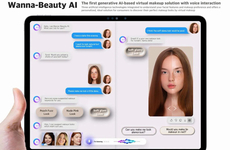
Muse by Microsoft is the First World and Human Action Model
Laura McQuarrie — February 28, 2025 — Tech
References: microsoft & community.designtaxi
The journal Nature recently published Microsoft's latest research introducing what it calls Muse, the first World and Human Action Model (WHAM,) that can generate game visuals, controller actions, or both—and this generative AI model of a video game can generate minutes of cohesive gameplay from a single second of frames and controller actions.
Unlike many AI models that focus on text or image generation, Muse was made to understand 3D game environments and respond dynamically to in-game actions—meaning it opens up a world of possibility for developers, who can now quickly prototype ideas, refine game mechanics, and more.
Developed by the Microsoft Research Game Intelligence and Teachable AI Experiences teams in collaboration with Xbox Games Studios’ Ninja Theory, Muse is trained on over a billion images and controller actions.
Unlike many AI models that focus on text or image generation, Muse was made to understand 3D game environments and respond dynamically to in-game actions—meaning it opens up a world of possibility for developers, who can now quickly prototype ideas, refine game mechanics, and more.
Developed by the Microsoft Research Game Intelligence and Teachable AI Experiences teams in collaboration with Xbox Games Studios’ Ninja Theory, Muse is trained on over a billion images and controller actions.
Trend Themes
1. Generative-AI Game Prototyping - Muse by Microsoft simplifies game development by swiftly generating gameplay visuals and actions, revolutionizing the prototyping process.
2. Dynamic 3D Environment Understanding - This AI model's ability to understand and respond to 3D game environments heralds a new era of interactive gaming experiences.
3. Cohesive Gameplay Generation - The capability to produce seamless gameplay sequences from minimal input highlights advancements in AI-driven narrative creation.
Industry Implications
1. Video Game Development - The integration of AI like Muse could transform traditional game design by significantly reducing development times and costs.
2. Artificial Intelligence - Muse represents a leap forward in AI's role in creative industries, showcasing the potential for smarter, more adaptable technology.
3. Entertainment Technology - Innovations like Muse signal a shift towards more immersive and automated content creation in the entertainment sector.
9.3
Score
Popularity
Activity
Freshness















